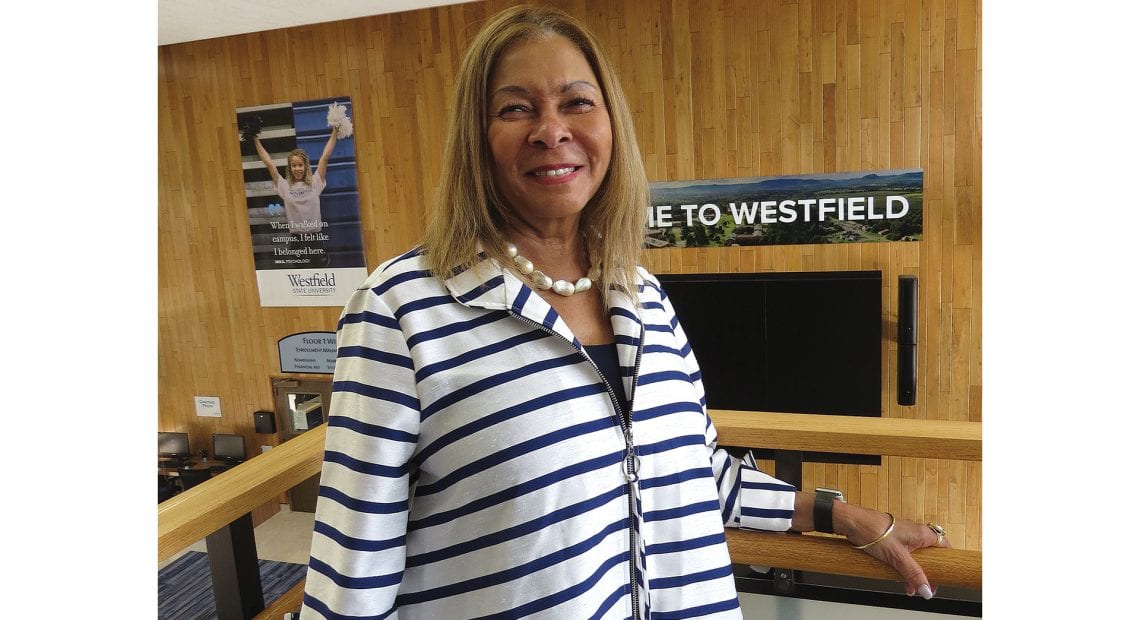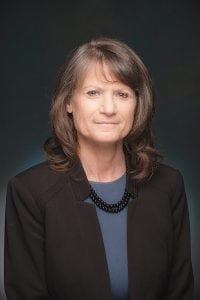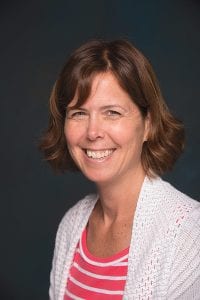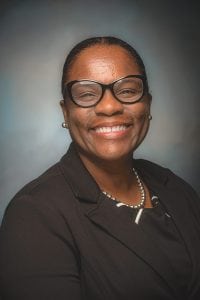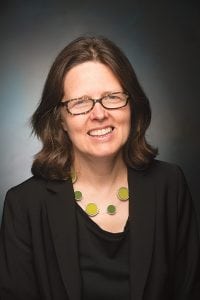Challenge Accepted
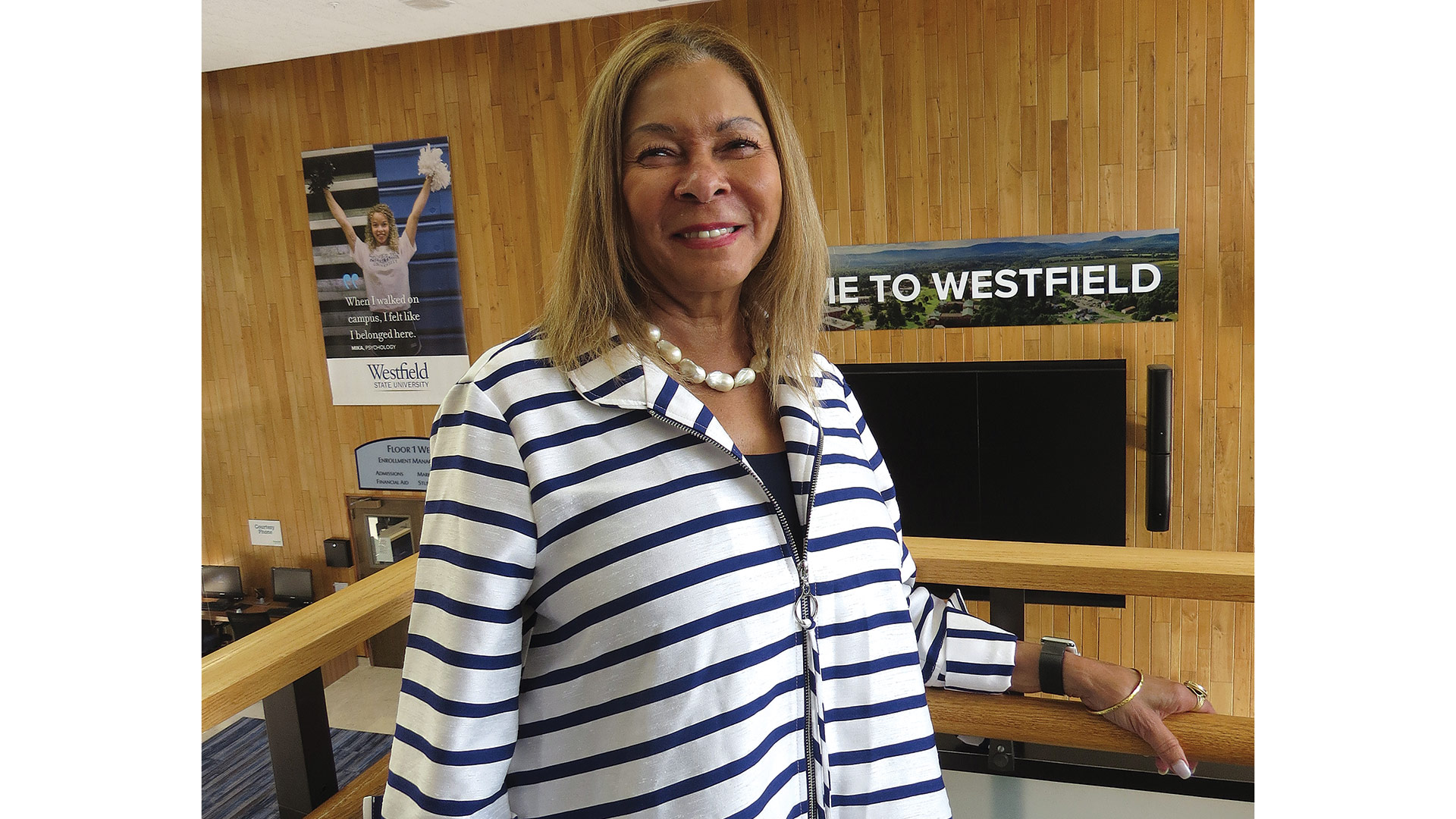
Linda Thompson, the 21st president of Westfield State University.
Linda Thompson had never applied for a college presidency position before a recruiter called and invited her to pursue that post at Westfield State University. She listened, and agreed it was time to take a 40-year-career in healthcare, public policy, and healthcare education to a new and much higher plane. She becomes WSU’s 21st president at a challenging time, especially as schools large and small return to something approaching normal after 16 months of life in a pandemic. But with her diverse background, she believes she’s ready for that challenge.
Linda Thompson remembers not only the call from the headhunter, made to gauge her interest in applying for the president’s position at Westfield State University, but the words of encouragement that accompanied it.
“She said, ‘Linda, I think you’re ready to think about being a president,’” said Thompson, who at the time was dean of the College of Nursing and Health Sciences at UMass Boston and hadn’t pursued a president’s position before. “She said, ‘you’re a dean now … look at the work deans do; they raise money, they create new programs, they create partnerships, they work with the board. The things you do as a dean are the things you’ll do as a president.”
More important than the recruiter thinking she was ready for the post at WSU, Thompson knew she was ready, even if she needed a little convincing.
“I thought I had the right background at this point in time to make a difference at this specific university,” she said, adding that it’s much more than the 35 years in higher education in various positions within nursing and health-sciences programs that gave her the confidence to enter and then prevail in the nationwide search for the school’s 21st president. It was also experience in public policy, working with a host of elected leaders to address a wide range of health and public-safety issues and, essentially, problem-solve.
“Education, to me, is a ticket out of poverty; it’s a ticket for creating wonderful solutions for society and for people.”
“Most of my career, I’ve worked with children and youth, trying to develop programs and policies to promote healthy outcomes for children, youth, and families,” she explained. “I started out, like most people in nursing, in a hospital and moved to community and public-health work. I really became interested in high-risk children just based on my work in public health, seeing how children who grew up in poverty, children who grew up in less-than-fortunate environments, were impacted by those circumstances.”
She points to her own family as an example, and noted that her two older sisters both died young, one from a gunshot wound at age 21 and the other from complications from diabetes during her second pregnancy as a teen.
“I always thought that the reason I thrived was education,” she told BusinessWest. “Education, to me, is a ticket out of poverty; it’s a ticket for creating wonderful solutions for society and for people. I’ve been blessed; I’ve not only had the opportunity to work as a nurse, I’ve also had the opportunity to work to develop programs for children who were in the justice system, people who were in state custody. I did work all over the country looking at ways we can promote good outcomes for people who had the misfortune to be engaged in the criminal-justice system.
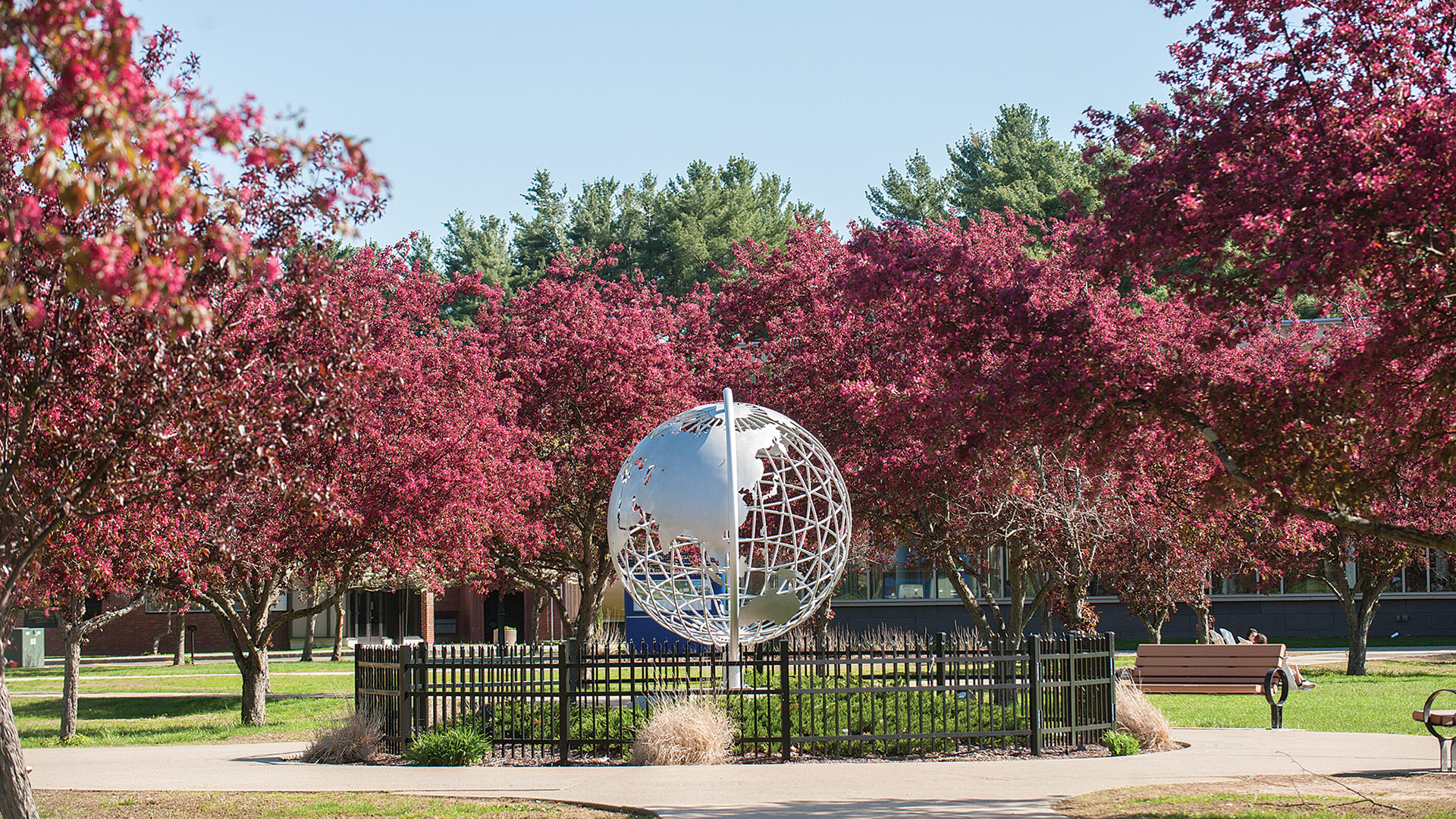
Linda Thompson says Westfield State University learned a number of lessons during the pandemic, and it will apply them as the school, its students, faculty, and staff return to something approaching normal this fall.
“I worked for the governor of Maryland for five years and developed programs and policies for children and youth statewide,” she went on. “We looked at how we could develop inter-disciplinary or trans-disciplinary programs, starting with education, all the way to how we need to work with housing and economic development to create good outcomes for families and for children.”
Thompson arrives at the rural WSU campus at an intriguing time for all those in higher education. Smaller high-school graduating classes have contributed to enrollment challenges at many institutions, and even some closures of smaller schools, and the soaring cost of a college education has brought ever-more attention to the value of such an education and how schools provide it.
Meanwhile, institutions will be returning to something approaching normal this fall after enduring two and a half semesters of life in a global pandemic, an experience that tested all schools in every way imaginable and also provided learning experiences and opportunities to do things in a different, and sometimes better, way.
Thompson acknowledged these developments and said they will be among the challenges and opportunities awaiting her as she takes the helm at the 182-year-old institution, founded by Horace Mann, whose pioneering efforts in education — and inclusion — are certainly a source of inspiration for her.
“He wanted to look at how education is important to a new society — a society that was going to be self-governed and where people needed to understand how to engage in civil society. I was very intrigued with this history, the inclusive nature of his approach to higher education, and how he looked back at some of the historical development of what I will call democracies in ancient Greece and the importance of an educated community to support democracies and health societies.”
For this issue and its focus on education, BusinessWest talked at length with Thompson about Horace Mann, the challenges facing those in higher education, and why she believes WSU is well-positioned to meet them head-on.
Grade Expectations
As noted earlier, Thompson brings a diverse portfolio of experience to her latest challenge.
Our story begins in 1979, when she began her career as a clinical nurse specialist in the Obstetrics and Gynecology Department at Henry Ford Hospital in Detroit. Soon thereafter, she would begin interspersing jobs in education with those in the public sector.
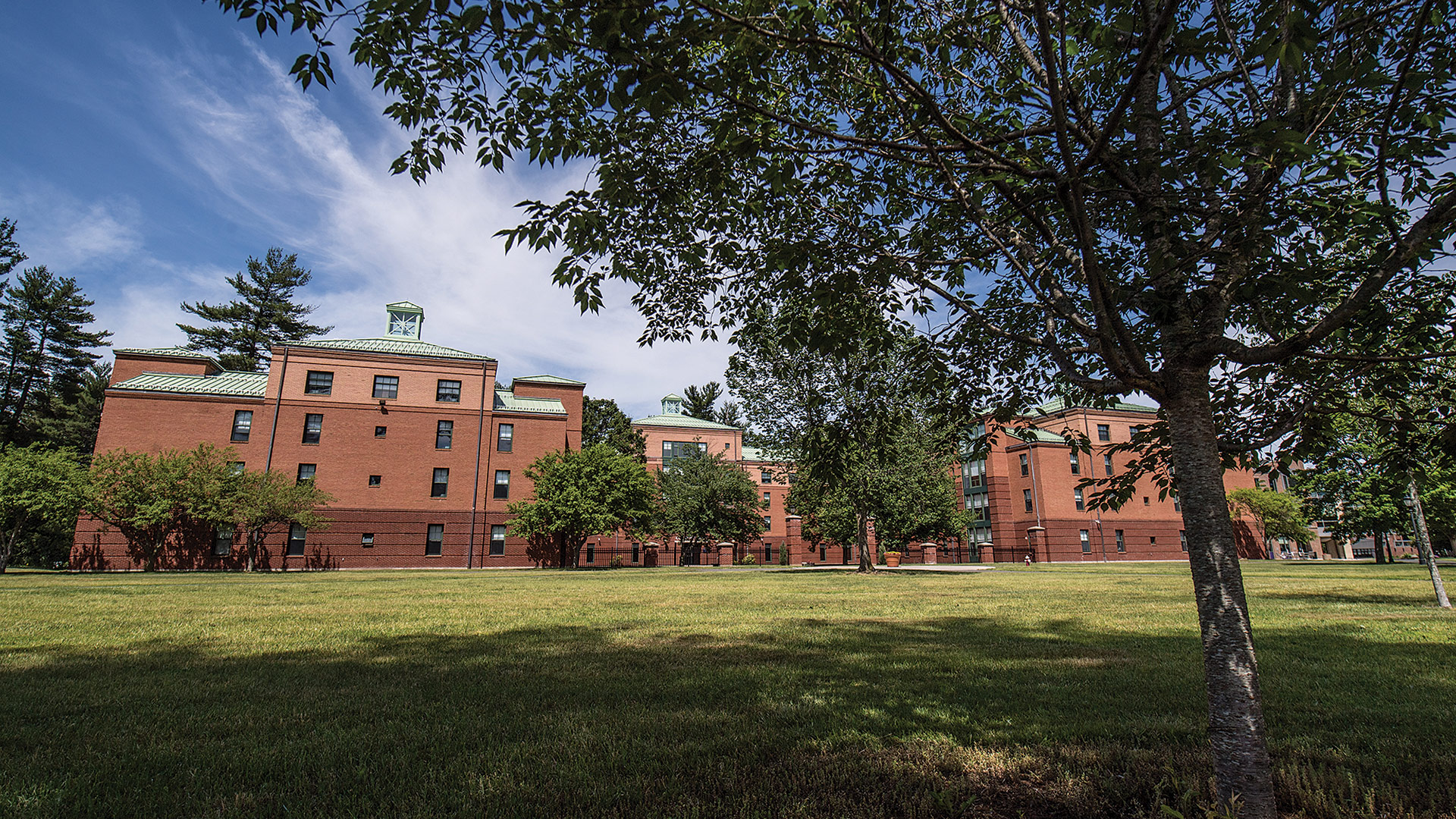
Linda Thompson says the timing was right for her to pursue a college presidency, and Westfield State University was the ideal fit.
In 1987, she became assistant dean at the School of Nursing at Coppin State College in Baltimore, and two years later took a job as director of the Office of Occupational Medicine and Safety in Baltimore. In 1993, she joined the school of Nursing at the University of Maryland, where she would hold a variety of positions between 1993 and 2003, with a four-year diversion in the middle to serve as special secretary for Children, Youth & Families in the Maryland Governor’s Office.
In 2003, she became dean of Nursing at Oakland University in Troy, Mich., and later returned to the East Coast, where she would join the staff at North Carolina A&T State University, first as provost and vice chancellor for Academic Affairs, then as associate vice chancellor for Outreach, Professional Development & Distance Education.
“I see myself as a servant leader, a person who tries to see how I can help another person maximize their opportunity to dig deep inside themselves, and identify their strengths and bring those strengths out.”
In 2013, she became dean of the College of Nursing and Health Sciences and a professor of Nursing at West Chester University in Pennsylvania, and in 2017, she came to UMass Boston, serving as dean of the College of Nursing and Health Services.
Slicing through all that, she said she’s had decades of experience working collaboratively with others to achieve progress in areas ranging from student success to diversity with staff and faculty; from forging partnerships with private-sector institutions to creating strategic plans; from creating new academic programs to securing new philanthropic revenue streams for faculty research.
And she intends to tap into all that experience as she leads WSU out of the pandemic and into the next chapter in its history.
As she does so, she intends to lean heavily on Horace Mann, considered by many to be the father of public education, for both inspiration and direction. In many respects, they share common viewpoints about the importance of education and inclusion.
“This whole idea of looking at healthy communities and using education to strengthen communities resonated with me,” Thompson explained. “And it resonated with me given some of the things we’re starting to see with our divided country; how do we get people educated so that they’re able to know how to be critical thinkers, how to separate fact from fiction, and how to begin looking at the importance of creating communities where everyone is healthy? To me, healthy is more than physical health — it’s emotional and social and environmental, this whole way that we look at values that really enable people to thrive and survive in society.”
Looking forward, she said she has many goals and ambitions for the school, with greater diversity and inclusion at the top of the list. She pointed to UMass Boston, which she described as one of the most diverse schools in the country, as both a model and a true reflection of the demographic changes that have taken place in the U.S.
“Those diverse populations are the future of higher education in this country,” she told BusinessWest. “We are becoming a majority minority population, and there are opportunities to reach out to communities of color and stress the importance of education to be part of a lifestyle where we’re constantly looking at ways to engage with people and give them tools to thrive.”
Course of Action
Thompson arrived at the WSU campus at the start of this month. She will use the two months before the fall semester begins to make connections — both on campus and within the community.
She said the calendar was quickly filling up with appointments with area civic, business, and education leaders, at which she will gauge needs, come to fully understand how the university partners with others to meet those needs, and discuss ways to broaden WSU’s impact and become even more of a difference maker in the community.
The discussions with business leaders will focus on the needs of the workforce and how to make graduates more workforce-ready, she said, adding that the school has been a reliable supplier of qualified workers to sectors ranging from education to healthcare to criminal justice.
Meanwhile, the meetings with those in education focus on widening and strengthening a pipeline of students through K-12 and into higher education, and also on finding paths for those who can’t, for various reasons, take such a direct path.
“For those who are not able to go to college right after high school, how do make it easy for these adults to come back to school?” she asked, adding that she will work with others to answer that question.
And some of the answers may have been found during the pandemic, she went on, noting that, out of necessity, educators used technology to find new and different ways to teach and engage students. And this imagination and persistence — not to mention the direct lessons learned about how to do things, especially with regard to remote learning — will carry on into this fall, when the campus returns to ‘normal’ and well beyond.
“For us, moving forward, I’ll think we’ll never go back to the way we educated people before,” she told BusinessWest, “because people have learned to do this work in a different kind of way, and the public has learned that this is an option moving forward to give people an opportunity to return to college.”
When asked about what she brings to her latest challenge, Thompson reiterated that it’s more than her work in higher education, as significant as that is. It’s also her work in public policy, and, more specifically, working in partnership with others to address global issues.
She counts among her mentors David Mathews, former president of the University of Alabama and secretary of Health, Education, and Welfare under President Ford. She worked with him when he was leading the Kettering Foundation.
“I spent time with him learning about the way he approached leadership and the way he approached democracy,” she noted. “I’ve been a dean, and I’ve had experience as a provost; overall, I believe I have the right set of skills to use the lessons I’ve learned to help develop the next set of community leaders in all fields.
“We need to look at a way that we can create curriculum and graduate people who are innovative, who are critical thinkers, who know how to research on their own, who know to look at problems and how to work in teams with other people in order to create solutions,” she went on. “These are things I’ve learned in my life, and those are things I want to impart to the students who come to this campus.”
As for her leadership style, Thompson described it this way: “I look at creating a vision and an idea and working with and through people — people who are above me, people who work alongside me, people who are younger — and learning from people at all levels and ages and stages of their development.
“I tend to see myself as someone who is transformational,” she went on. “I see myself as a servant leader, a person who tries to see how I can help another person maximize their opportunity to dig deep inside themselves, and identify their strengths and bring those strengths out.”
George O’Brien can be reached at [email protected]



